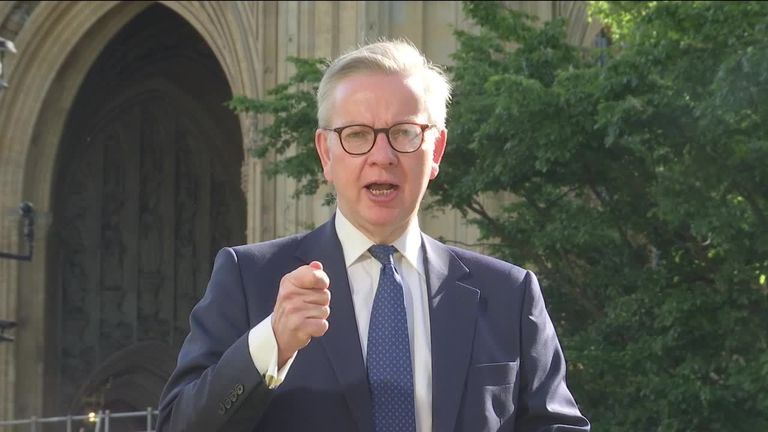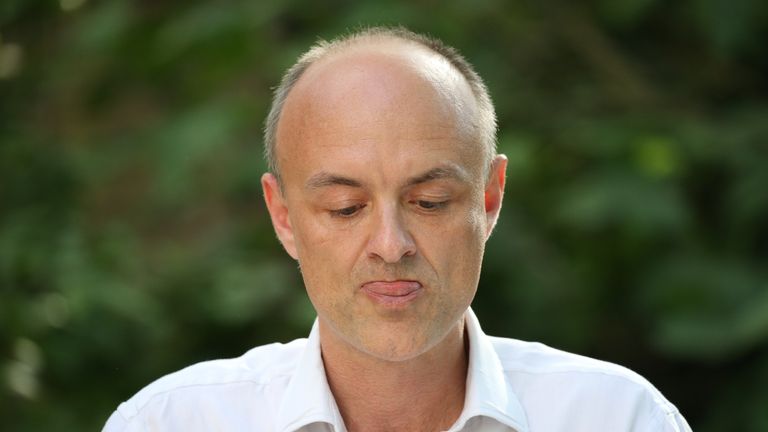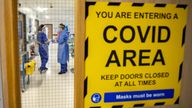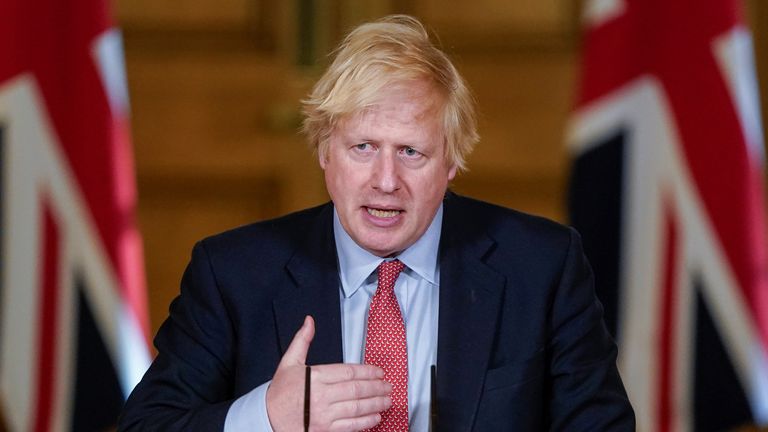Coronavirus: Dominic Cummings was 'wise' to test his eyesight with trip to Barnard Castle - Gove
Pressure builds on the under-fire adviser as Boris Johnson tries to press on with loosening lockdown.
Tuesday 26 May 2020 11:51, UK
Cabinet Office minister Michael Gove has defended Dominic Cummings after the senior aide said he had tested his eyesight with a 30-minute drive to a beauty spot during lockdown.
Mr Gove said Mr Cummings was "wise" to make the trip with his wife and child from Durham to Barnard Castle as he wanted to "make sure he was comfortable behind the wheel" before driving back to London.
Mr Cummings is under pressure from 20 Tory MPs, bishops and NHS staff to resign for claiming he had "exceptional circumstances" for travelling from his home in London to his parents' farm in County Durham at the end of March to seek childcare help.
His refusal to apologise in the face of hypocrisy claims at an unprecedented Downing Street news conference after days of denials from Number 10 has raised more questions about his travels.
Explaining his visit to Barnard Castle the day before he drove back to London, Mr Cummings said: "My wife was very worried, particularly as my eyesight seemed to have been affected by the disease.
"She did not want to risk a nearly 300-mile drive with our child given how ill I had been. We agreed that we should go for a short drive to see if I could drive safely, we drove for roughly half an hour and ended up on the outskirts of Barnard Castle town.
"We did not visit the castle, we did not walk around the town. We parked by a river. My wife and I discussed the situation, we agreed that I could drive safely, we should turn around and go home."
The drive to Barnard Castle was on Mr Cummings' wife's birthday, however, and police chiefs have said if he was feeling unwell and his eyesight may have been impaired he should not have been driving.
:: Listen to the Daily podcast on Apple Podcasts, Google Podcasts, Spotify, Spreaker
Defending the move, Mr Gove told Kay Burley@Breakfast: "He was wise to make sure he was comfortable before driving back down to London on the A1 - an inevitably busy road...
"I can understand why he just just wanted to make sure he was comfortable behind the wheel."
Mr Cummings also faces further scrutiny on what he told the prime minister and when about his decision to self-isolate in Durham rather than at home in London.
"At some point during the first week where we were both sick and in bed, I mentioned to him what I had done," said Mr Cummings. "Unsurprisingly, given the condition we were in, neither of us remember the conversation in any detail."
Later, asked what he knew about Mr Cummings' travels, the prime minister - who spent a week in hospital with coronavirus - said he had a lot on his plate at the time. But he backed Mr Cummings' eyesight claim.
"I'm finding that I have to wear spectacles for the first time in years - because I think of the likely effects of this thing," said the PM. "So I'm inclined to think that's very, very plausible that eyesight can be a problem associated with coronavirus."
Attempting to divert attention from the row over Mr Cummings, Mr Johnson has announced that thousands of high street shops, department stores and shopping centres across England are set to reopen next month once they are COVID-19 secure.
Outdoor markets and car showrooms will be able to reopen from 1 June and shops selling clothes, shoes, toys, furniture, books, and electronics, plus tailors, auction houses, photography studios, and indoor markets, will be able to reopen from 15 June.
But as Mr Cummings continues to dominate headlines, the government is still battling to contain the coronavirus pandemic, with the number of dead continuing to rise and the latest test numbers falling below the 100,000-a-day target.






